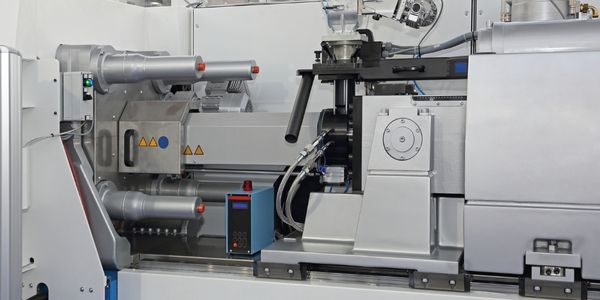Customer Company Size
Large Corporate
Region
- Europe
- Asia
Country
- Italy
- China
- India
- Thailand
Product
- TRITON® Web, Email and Data Security
Tech Stack
- Data Loss Prevention (DLP)
- Cloud
Implementation Scale
- Enterprise-wide Deployment
Impact Metrics
- Brand Awareness
- Customer Satisfaction
Technology Category
- Cybersecurity & Privacy - Database Security
Applicable Functions
- Discrete Manufacturing
- Product Research & Development
Use Cases
- Predictive Maintenance
- Manufacturing System Automation
Services
- System Integration
- Cloud Planning, Design & Implementation Services
About The Customer
Danieli & C. Officine Meccaniche S.P.A. is one of the three largest global suppliers of industrial plants and equipment for the metal industry. It can produce anything from individual units to complex “turn-key” projects. The wide range of products and processes available — including automation and process control — covers all stages of production from ore processing to the finished product. In addition to the engineering skills and project management, the company has extensive production expertise which uses its own design centers and buildings and is strategically located in Europe and Asia to guarantee continuous high quality. Danieli employs more than 11,000 people — spanning the globe — in Europe, North America, South America, and Asia. The average annual revenue exceeds 3 billion euros. Substantial investments in Research and Development (140 million/year over the last five years) support the development of innovative and ecologically sustainable processes and maintain the company’s leadership in the global market.
The Challenge
One of Danieli’s key challenges was protecting its intellectual property, specifically its designs for machinery and industrial plants. Moreover, as a public company, Danieli was concerned with protecting its corporate image while providing protection against a quickly evolving and adapting threat landscape. Additionally, the company was looking for a solution that would easily extend the same level of security across all locations with the ability to manage everything from one centralized and unified console. The leadership team realized the need for a Data Loss Prevention (DLP) solution — a solution that would solve all of these issues. The importance of security in other internal company departments was not always at the forefront of people’s minds. Many people have the perception that security is not a priority until after a breach has occurred. The introduction of a DLP solution highlights the significance of handling data that could jeopardize the company if it were in the wrong hands.
The Solution
Danieli’s designs, engineering plans, and technologies are highly sophisticated – the result of over 100 years of experience. Due to this complexity, the risk assessment took a data-centric approach. A critical consideration was the operating modes that Danieli uses for interaction with customers and suppliers; they are often forced to send confidential documents externally which need to be secured. The company has many different documents in unstructured formats as well as technical drawings in 2D and 3D CAD formats. These documents are sent using standard technologies such as file transfers via the network, USB devices, CD/DVD, and by printing hard copies. Therefore, it was important to have a solution that would enable Danieli to analyze the flow of data while at the same time not restricting the day-to-day operations of its employees. Over time, the Forcepoint development team has always been attentive to the demands of Danieli. While the deployment of TRITON was gradual at first, the company eventually extended it to the main subsidiaries in Thailand, China and India. In 2011, Danieli added Forcepoint appliances that enabled the company to expand the perimeter of protection on a global scale. In 2014, the landscape changed for the company and it replaced physical appliances with virtual systems. This allowed it to extend the scope of the protection through the use of the Cloud.
Operational Impact
Quantitative Benefit

Case Study missing?
Start adding your own!
Register with your work email and create a new case study profile for your business.
Related Case Studies.

Case Study
Remote Monitoring & Predictive Maintenance App for a Solar Energy System
The maintenance & tracking of various modules was an overhead for the customer due to the huge labor costs involved. Being an advanced solar solutions provider, they wanted to ensure early detection of issues and provide the best-in-class customer experience. Hence they wanted to automate the whole process.

Case Study
Predictive Maintenance for Industrial Chillers
For global leaders in the industrial chiller manufacturing, reliability of the entire production process is of the utmost importance. Chillers are refrigeration systems that produce ice water to provide cooling for a process or industrial application. One of those leaders sought a way to respond to asset performance issues, even before they occur. The intelligence to guarantee maximum reliability of cooling devices is embedded (pre-alarming). A pre-alarming phase means that the cooling device still works, but symptoms may appear, telling manufacturers that a failure is likely to occur in the near future. Chillers who are not internet connected at that moment, provide little insight in this pre-alarming phase.

Case Study
Plastic Spoons Case study: Injection Moulding
In order to meet customer expectations by supplying a wide variety of packaging units, from 36 to 1000 spoons per package, a new production and packaging line needed to be built. DeSter wanted to achieve higher production capacity, lower cycle time and a high degree of operator friendliness with this new production line.

Case Study
Robot Saves Money and Time for US Custom Molding Company
Injection Technology (Itech) is a custom molder for a variety of clients that require precision plastic parts for such products as electric meter covers, dental appliance cases and spools. With 95 employees operating 23 molding machines in a 30,000 square foot plant, Itech wanted to reduce man hours and increase efficiency.

Case Study
Aircraft Predictive Maintenance and Workflow Optimization
First, aircraft manufacturer have trouble monitoring the health of aircraft systems with health prognostics and deliver predictive maintenance insights. Second, aircraft manufacturer wants a solution that can provide an in-context advisory and align job assignments to match technician experience and expertise.

Case Study
Integral Plant Maintenance
Mercedes-Benz and his partner GAZ chose Siemens to be its maintenance partner at a new engine plant in Yaroslavl, Russia. The new plant offers a capacity to manufacture diesel engines for the Russian market, for locally produced Sprinter Classic. In addition to engines for the local market, the Yaroslavl plant will also produce spare parts. Mercedes-Benz Russia and his partner needed a service partner in order to ensure the operation of these lines in a maintenance partnership arrangement. The challenges included coordinating the entire maintenance management operation, in particular inspections, corrective and predictive maintenance activities, and the optimizing spare parts management. Siemens developed a customized maintenance solution that includes all electronic and mechanical maintenance activities (Integral Plant Maintenance).







